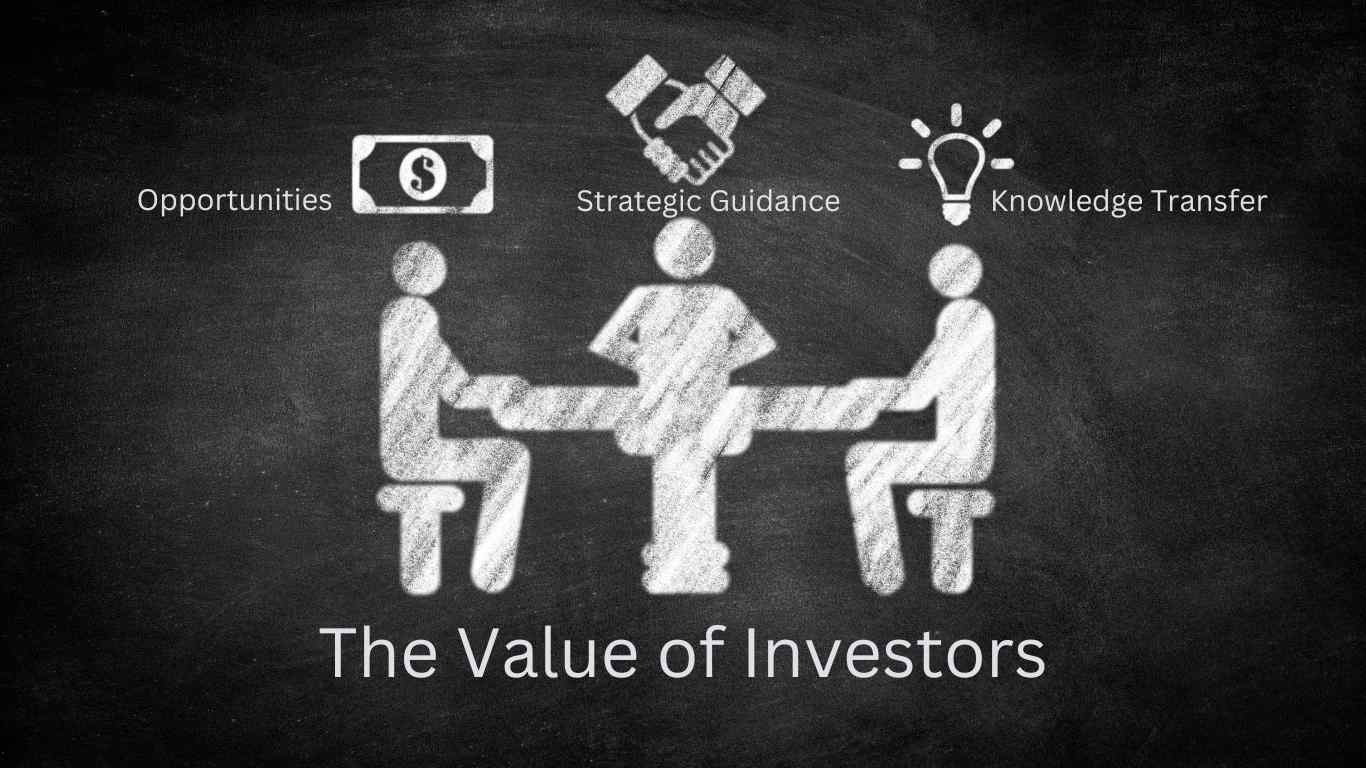Running a small business is an exciting endeavor, filled with dreams of growth and success. However, one common challenge that entrepreneurs face on this journey is the need for capital. Whether you’re starting a new venture or looking to expand your existing small business, securing the necessary funds is crucial. This is where investors come into the picture. In this comprehensive guide, we will explore the intricate process of finding and attracting investors to support your small business.
The Value of Investors
Investors are not just financial backers; they are strategic partners who bring a wealth of wisdom and experience to the table. Their insights extend far beyond the capital they provide, making them invaluable assets to your business. Here’s how investors can significantly impact your small business:
Knowledge Transfer
Experienced investors often come with a deep understanding of your industry. They can offer insights and guidance that help you navigate complex challenges and make informed decisions. Think of them as mentors who can save you from costly mistakes.

Strategic Guidance
Investors with industry-specific expertise can provide strategic direction for your business. They help you formulate effective growth strategies, identify emerging trends, and seize opportunities that might have otherwise gone unnoticed.
Networking Opportunities
One of the most significant advantages of having investors is access to their extensive networks. They can introduce you to key players in your industry, potential customers, suppliers, and even other investors. These connections can open doors that were previously out of reach.
How to Find Investors for Your Small Business
Now that we’ve established the value of investors, let’s delve into the strategies for finding the right backers for your small business:
Start with Your Inner Circle
Your journey to find investors may begin with those who know you best—your family and friends. These individuals have a personal connection with you and may be more inclined to invest, especially if you have a track record of success or expertise in your field. They believe in your vision because they know you and your capabilities.
For instance, if you’re known as the best baker in town, with a shelf full of awards and a loyal customer base, your family and friends are likely aware of your potential. When you decide to open a pie shop, they might be the first in line to invest, driven by their firsthand experience of your talent.
Investments from family and friends often come with minimal formalities, making them a relatively straightforward funding source. You can even consider pooling investments from multiple individuals, gradually inching closer to your funding goal.
Leverage Existing Connections
If your immediate network doesn’t include potential investors, don’t despair. Look beyond your inner circle to their connections. Friends and family might have valuable contacts who can introduce you to investors. An introduction from a trusted source carries substantial weight and can significantly boost your credibility.
You might be pleasantly surprised by the connections your friends and family have. Perhaps a cousin works for a prominent investment firm, a friend has access to a startup assistance group, or an acquaintance has ties to successful entrepreneurs. Leverage these connections to expand your reach.
Tap into Industry Networks
Consider the industry you operate in. You’ve likely met peers and business owners at industry events, conferences, or even within your local community. Joining online groups and forums dedicated to your industry can also be valuable. These connections can lead you to investors who understand the unique dynamics of your field.
Engage with industry professionals, share your vision, and express your funding needs. You might discover individuals willing to support your business or introduce you to potential investors.
Explore Crowdfunding Platforms
Crowdfunding platforms offer a digital avenue for raising funds from a diverse audience. There are various types of crowdfunding platforms, each with its approach:
Reward-Based Platforms
Platforms like Kickstarter and Indiegogo encourage people to contribute funds in exchange for rewards. Typically, the rewards are related to your business, giving backers a tangible incentive to invest. For instance, if you’re opening a doughnut shop, backers might receive dozens of doughnuts or special treats based on their contribution.
Donation-Based Platforms
Donation crowdfunding involves people willingly contributing funds without expecting a financial return. These campaigns often aim to support specific projects, individuals, or communities in need. GoFundMe is a prominent example of a donation-based crowdfunding platform.
Peer-to-Peer Lending
Peer-to-peer lending platforms like Lending Club and Prosper connect businesses seeking capital with individual investors. Applicants go through an online evaluation process, and lenders assign a credit score to the business. The money is then lent based on this assessment. The appeal for investors lies in receiving periodic repayments with interest, while borrowers may access capital at lower costs compared to traditional bank loans.
Equity-Based Platforms
Equity crowdfunding platforms, such as OurCrowd, enable investors to acquire partial ownership in your company. Investors receive shares in your business and, in some cases, a share of the profits. While this approach grants you access to capital, it involves giving up some ownership and sharing potential returns.
Strategic Networking
Effective networking is a valuable tool for attracting investors. Start by identifying where potential investors spend their time, both in-person and online. Are they part of specific industry groups or associations? Do they engage in particular extracurricular activities? Once you pinpoint these areas, find ways to become part of those communities.
Networking goes beyond merely showing up; it involves being of service to others. Establish trust and build relationships by offering value to those you meet. Avoid approaching potential investors with a blatant sales pitch, as this can often be a turn-off. Instead, focus on building genuine connections based on shared interests and goals.
Consider exploring your alumni network, trade organizations, or your local chamber of commerce. Additionally, your local Small Business Development Center (SBDC) can be a valuable resource, offering guidance and potential connections.
Applying for a Small Business Administration Loan
The Small Business Administration (SBA) is a government agency dedicated to supporting small businesses. While the SBA doesn’t directly lend money, it offers valuable resources to help you secure loans. They have a lender match tool on their website that connects businesses with approved lenders.
SBA loans often come with lower interest rates and guaranteed loan options, making them an attractive choice for small businesses. Their website is a treasure trove of resources, ranging from business planning tools to assistance for growing your business.
Should You Seek Investors for Your Business?
The decision to pursue investors depends on your specific business goals and financial requirements. Before embarking on this journey, assess how much capital you truly need and carefully consider the pros and cons of various funding sources.
There’s no one-size-fits-all approach when it comes to financing your business. You might choose to seek investors, explore alternative funding methods, or even consider working with angel investors. The key is to align your funding strategy with your business’s unique journey and aspirations.
In conclusion, your business journey is unlike anyone else’s. As you seek ways to fund your small business’s growth and success, explore various options, leverage your network, and find the solution that best aligns with your goals. Remember that every step you take brings you closer to realizing your business’s full potential.
Frequently Asked Questions (FAQs)
- What are the benefits of having investors for my small business?
- Investors bring not only financial support but also valuable industry expertise and connections. They can guide your business, help you avoid costly mistakes, and introduce you to influential individuals in your field.
- How can I find investors among my family and friends?
- Start by sharing your business vision with those close to you. If they believe in your idea and see your potential, they may be willing to invest. Especially if you have a track record of success or expertise in your industry.
- What if I don’t have family or friends who can invest?
- Consider exploring their connections. Your inner circle might have valuable contacts who can introduce you to potential investors. An introduction from someone they trust can significantly boost your credibility.
- Are there online platforms to find investors?
- Yes, there are crowdfunding platforms like Kickstarter and Indiegogo, where individuals can invest in exchange for rewards. Donation-based platforms like GoFundMe also exist, as well as peer-to-peer lending platforms such as Lending Club and Prosper. Equity-based platforms like OurCrowd allow investors to take partial ownership of your company.
- How can I network effectively to attract investors?
- Identify where potential investors spend their time, both online and in-person. Join industry-related groups or associations, participate in relevant events, and engage in activities that align with their interests. Offer value and build genuine connections rather than presenting a sales pitch.
- What is the Small Business Administration (SBA), and how can it help me secure loans?
- The Small Business Administration (SBA) is a government agency dedicated to supporting small businesses. While it doesn’t directly lend money, it offers resources to help you secure loans. Their lender match tool connects businesses with approved lenders, and they provide access to loans with lower interest rates and guaranteed options.
- Should I seek investors for my business, or are there alternative funding methods?
- The decision to seek investors depends on your business goals and financial needs. Carefully assess how much capital you require and consider various funding sources, including investors, alternative methods, or angel investors. Choose the option that aligns best with your business’s unique journey and aspirations.

